Vicki J Kondelik
Library Blogs
Showing 481 - 490 of 2007 items

This sequel to The Three Musketeers continues the adventures of d'Artagnan, Athos, Porthos, and Aramis. The new ruler of France is the cunning and manipulative Cardinal Mazarin. During a rebellion against his rule, the musketeers find themselves on opposite sides of the conflict. They travel to England to save Charles I from execution, and fight against Mordaunt, the evil son of Milady, who is determined to avenge his mother's death.
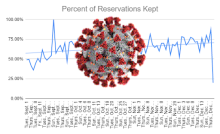
The interruption to library services caused by COVID-19 meant we needed to quickly develop new data collection strategies to give us information to manage our modified services for the 2020-2021 academic year. It also gave us an opportunity to conduct a deep reflection and assessment of how our regular collection had been going, and to be ready to make changes as we reinstituted more regular services. In two posts, we describe the evolution of our data collection efforts.
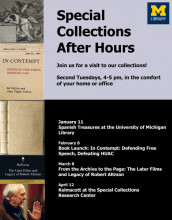
We are excited to continue our online After Hours open houses this semester! Join the Special Collections Research Center on the second Tuesday of each month 4-5 pm for a virtual encounter with our collections. While all the events are online, we have offered an in-person option for the first session in the series. All are welcome to beam in and join us.
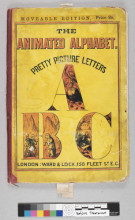
First in a series of guest posts from Shaoyi Qian, summer 2021 Baker Fellow at the U-M Library's conservation lab, describing her work on several pop-up and moveable books
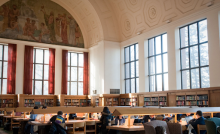
When you use library services, do you think about the interaction-generated data? The U-M Library collects data on its patrons, from user profiles to online resource access information. Recently, the library has considered using this data to engage in library analytics, making inferences about users’ future behaviors. An Engagement Fellows project that began in 2020 seeks to learn more about what library patrons think of the use of analytics at the U-M Library.
•
Interested in studying video games during the Winter term? Check out this list of courses involving the study of video games that are being offered next term. Also, find out more about game studies on campus by checking out the Video Game Studies Research Guide.

The Accessibility Remediation Team was created to serve as a resource for students, faculty, and staff when they needed more accessible library content. Beginning in the Fall 2020 we identified tools and processes to use in remediating video, audio, and PDFs for accessibility. As part of our service, we focused on assessment, gathering feedback through ‘exit’ surveys of colleagues and patrons, and using project management tools to gauge the amount of time tasks take to complete.
•
Information about winter term hiring for the Design Lab Internship program, including responsibilities and qualifications, as well as a link to the online application.
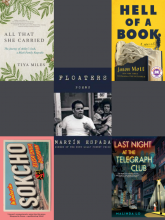
Every year the National Book Foundation presents the National Book Awards to honor some of the best books published that year. The five judges for the award this year consisted of four published authors and one librarian. They chose winners in five categories: Fiction, Nonfiction, Poetry, Translated Literature and Young People’s Literature. This is a post consisting of the winners, with a spreadsheet of all of the longlist of nominees that are available at the library.

Join the Special Collections Research Center next Tuesday (14 December) at 4 pm EST for our final After Hours virtual open house of the term exploring materials from the Joseph A. Labadie Collection relating to prison abolition, prisoner support, and political prisoners.